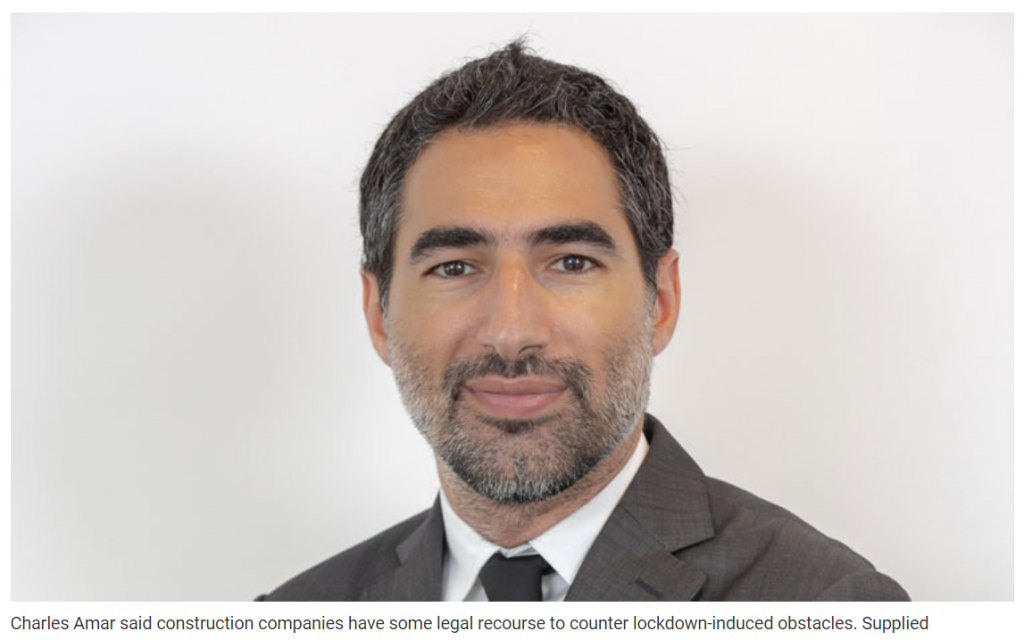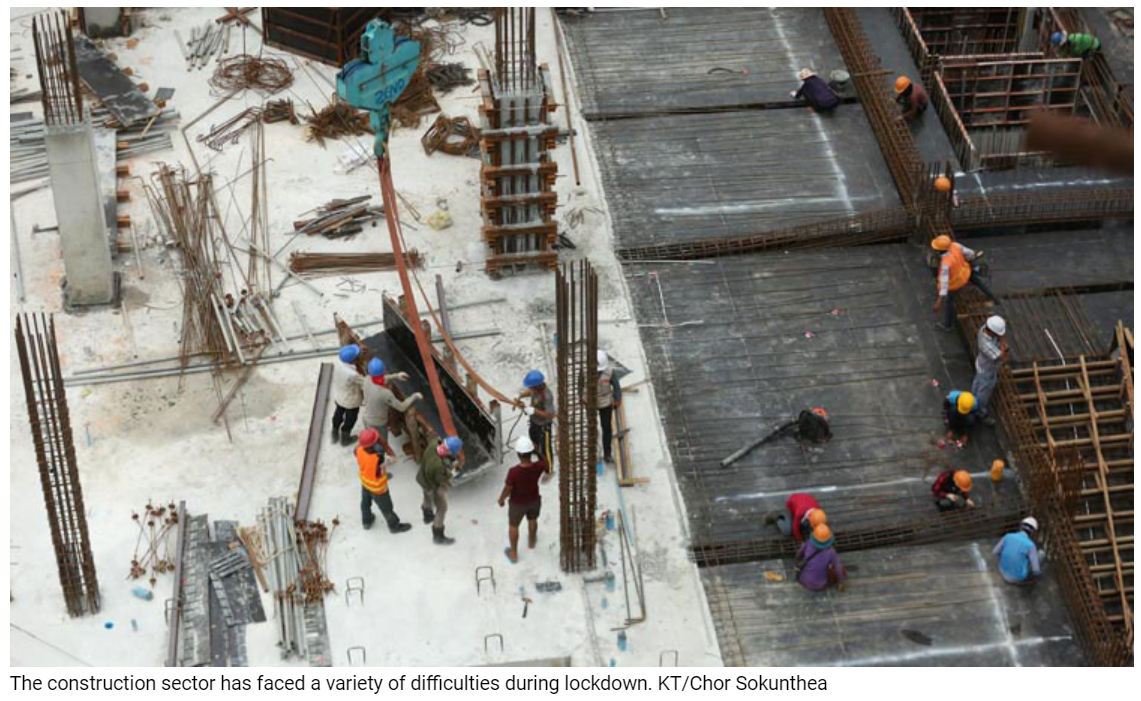Cambodia: Legal recourse for the locked-down construction sector
The construction sector faced unique challenges during the recent lockdown which ended yesterday, but there is legal recourse available to construction companies, including filing claims for force majeure (uncontrollable events) and change of law.
Charles Amar, real estate law expert and vice-chairman of EuroCham’s Real Estate and Construction Committee, discussed these options during a virtual meeting hosted by EuroCham.
Amar said the construction sector has faced obstacles on multiple fronts, including cash-flow issues, administrative difficulties, delayed completion dates and, for many companies, site closures during lockdown.
Issues facing the companies include negotiating extensions for insurance policies, avoiding late-delivery fees and ensuring delivery of materials.
Obtaining permits from government officials to allow employees – some of whom reside within Red Zone areas – to travel to their sites has also been an issue because many officials worked from home during the lockdown.
Amar said navigating these problems will be especially difficult for companies with high levels of debt and low cash reserves.
While contractual stipulations between parties will vary between agreements and ultimately hold the most weight when seeking legal course, Amar suggested filing force majeure or change of law claims.

Charles Amar said construction companies have some legal recourse to counter lockdown-induced obstacles. Supplied
Amar said construction companies could take legal recourse against employers or main contractors (if the construction companies are sub-contractors) and insurance companies.
Force majeure is not clearly defined by the Cambodian Civil Code but the Law on Construction implemented in 2019 defines it as “an event that happens against one’s will, which is unexpected and which is irresistible”.
To claim force majeure, a party must prove that the lockdown implemented to prevent the spread of COVID-19 was unexpected, irresistible and beyond its control.
Amar said it is relatively easy to prove that the COVID-19 situation is beyond anyone’s control and that the resulting restrictions imposed could not be resisted because worksites had been forced to close by the government.
Proving that the situation was unexpected is the one point of contention, Amar said, because employers can attest that parties which signed a contract recently were aware of the pandemic.
However, construction companies can argue that lockdowns were unforeseen, as was the Feb 20 Community Incident.
Amar advised construction companies to file claims quickly in accordance with timeframes described in their contract, or they risk not being able to debate the claim at all.
For a change of law claim, certain contracts include clauses that allow construction companies to request an extension of time and recoup additional costs if a change of law can be proved.
Amar noted that this only applies to construction companies headquartered in Cambodia, because these clauses typically apply only to laws changed in the country where the construction site is located.
If a force majeure claim is accepted, Amar said contractors may be able to avoid late-delivery penalties and recoup additional costs incurred. The construction contract is likely to be suspended or, in rarer cases, terminated.
There have been no precedents to gauge how a judge or arbitrator will rule on these claims in Cambodia, said Amar.
Amar said force majeure may also be invoked by employers to avoid payments, but many jurisdictions have not allowed this because banks have typically been allowed to stay open during lockdowns and payments can be made remotely.
Concerning employee payments, Amar said government instruction No 043/21 issued by the Ministry of Labour and Vocational Training in April dictated that companies that have had to suspend operations during lockdown must pay wages for early April before the lockdown commenced, must maintain the positions and seniority of employees and must provide additional allowances to employees “according to their ability and based on humanity and solidarity”.
Amar said companies can also legally suspend employment contracts while employees were not able to work and Article 72 of the Labour Law states that employers do not have to pay their employees during this time.
Regarding insurance policies, construction companies should check to see if they have signed up for a business-interruption policy.
Amar noted that in France some insurance brokers earlier this year were required by courts to recoup losses to insured restaurants for losses because of COVID-related factors, a decision that could be duplicated in Cambodia. When force majeure or related clauses are not contained in contracts, the claim will fall under the purview of the Construction Law promulgated in 2019. Ultimately, Amar said the contracts will be the biggest determinant in any force majeure or change of law case. It will likely be easier for contracts written according to International Federation of Consulting Engineers (FIDIC) regulations, which are widely used in Cambodia and contain stipulations regarding forced work suspensions.
Amar said although the lockdown is largely over for the time being, the effects will be felt by construction companies for some time.
“Even if the [full] lockdown is over tonight, the impact will still remain for a lot of construction projects and construction companies and that’s why it’s really important to claim on time, relating to the different recourses you have,” he said.
Source: https://www.khmertimeskh.com/50852967/legal-recourse-for-the-locked-down-construction-sector/


 Thailand
Thailand




